Search Results
Showing results 101 to 120 of 171

Not Just A Bag Of Beans
Source Institutions
In this activity, learners count and measure kidney beans to explore natural selection and variation. Learners measure the length of 50-100 beans.

Nowhere to Hide
Source Institutions
In this online simulation, learners can see adaptation and camouflage in action.
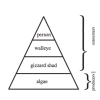
Who Can Harvest a Walleye?
Source Institutions
This activity focuses on interactions within Earth systems and the effects of human activities. In this activity learners build a biomass pyramid.
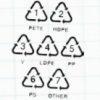
Sink or Swim?
Source Institutions
In this activity, learners identify different plastics in a mystery bag. Learners discover that plastics are classified #1 through #7.
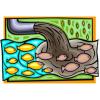
Storm Water Runoff Pollution
Source Institutions
This activity (located on page 8 of the PDF) introduces learners to the concept of Non-point Source Pollution--what happens when rain washes garbage and other pollutants into rivers and lakes.

Ocean in a Bottle
Source Institutions
In this activity, learners consider how oil spills behave in the ocean and what impact they have on marine wildlife.

Sea Turtle First Aid Investigation
Source Institutions
This activity (located on page 4 of the PDF under GPS: Sea Turtles Activity) is a full inquiry investigation into testing a repair material.

Can Nutrients in Water Cause Harm?
Source Institutions
In this water pollution activity, learners create pond water cultures and investigate the effects of adding chemicals or natural nutrients.

Racing with the Sun: Creating a Solar Car
Source Institutions
Learners use engineering design principles to construct and test a fully solar-powered car. Solar car kits usually include a photovoltaic cell and motor; some include a chassis as well.

Home Water Audit
Source Institutions
This activity offers learners and their families several ways to raise their awareness together about home water.
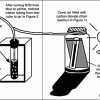
How Greenhouse Gases Absorb Heat
Source Institutions
Learners observe two model atmospheres -- one with normal atmospheric composition and another with an elevated concentration of carbon dioxide.

The Carbon Cycle: Carbon Tracker
Source Institutions
In this activity, learners play NOAA's Carbon Tracker game and discover ways to keep track of carbon dioxide and other greenhouse gases in the world.
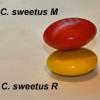
Survival of the Fittest: Variations in the Clam Species Clamys sweetus
Source Institutions
This guided inquiry three-part activity engages learners in thinking about the mechanism of natural selection by encouraging them to formulate questions that can be answered through scientific investi

Cleaning Air with Balloons
Learners observe a simple balloon model of an electrostatic precipitator. These devices are used for pollutant recovery in cleaning industrial air pollution.
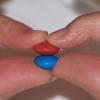
Survival of the Fittest: Battling Beetles
Source Institutions
This guided inquiry three-part activity engages learners in thinking about the mechanism of natural selection through data collection and pattern recognition.

Don't Throw it in the Garbage
Source Institutions
In this activity, learners discover why only some types of plastic can be recycled.
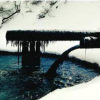
How Did That Get There?: Water Pollution
Source Institutions
As a group, learners consider sources of water pollution to understand where pollution starts and where it ends up.
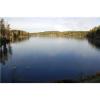
Water Walk
Source Institutions
Learners take a field trip along a local body of water and conduct a visual survey to discover information about local land use and water quality.
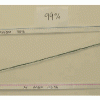
Atmosphere Composition Model
Source Institutions
In this activity, learners create a model using metric measuring tapes and atmosphere composition data.
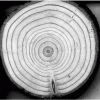
Trees: Recorders of Climate Change
Source Institutions
In this activity, learners are introduced to tree rings by examining a cross section of a tree, also known as a “tree cookie.” They discover how tree age can be determined by studying the rings and ho
